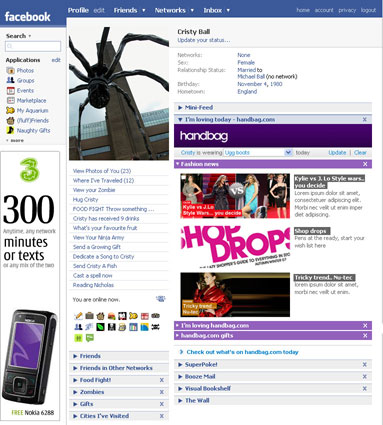Earlier this month Sky News launched a competition offering £10,000 in prize money for developers to come up with new and novel uses of its RSS feeds.
Text, images and video are all covered in RSS and hoping for a innovative use of its feeds the news provider has put no limit on what developers can potentially come up with.
The competition closes this Friday and those with the best ideas will be asked to attend a ‘Dragons’ Den-style Judgment Day at the Sky News studios on Thursday 20th December.’
According to the terms and conditions of the competition:
“Sky will select approximately ten contributions whose applications show the most potential, from the points of view of design, usability, innovation and originality, to be deployed into a live environment, and could most successfully distribute Sky News content via new methods, web or otherwise.”
Aside from reward of actually developing a useful application for these feeds, Sky News plans to give at least £1,000 to the winner and at least £200 to each finalist.
However, in return Sky News will take quite a bit:
“Sky will keep details of, and retain a licence to use the Contribution of each Finalist, whether or not that Finalist is selected to be the Winner or a Runner-Up. Sky will require each Finalist, and, if a Finalist is under 18, a parent or guardian, to sign a separate agreement confirming Sky’s rights to use the Contribution.
3.2 All Finalists agree that the copyright (if any) and all other rights, title and interest, in and in respect of their Contribution, will be licensed by the Finalist to Sky as follows:
(a) Sky shall have an exclusive royalty free worldwide license in all media in the Finalist’s Contribution for a period of 3 months from the date of the submission of the Contribution by the Finalist;
(b) after that 3 month period, Sky shall have a non-exclusive royalty free worldwide license in perpetuity in all media in the Finalist’s Contribution.
All Finalists must agree that no payment (other than Prizes where awarded) shall be due to them nor shall they make a claim for any further payment against Sky or its licensees or assigns in respect of the license of such rights.”
Nothing particularly new in this, the approach is fairly typical of other commercial/creative competitions, Channel 4 is pretty much setting the same conditions for its own RSS widget competition.
So the position is a news company owned by a billionaire is asking for someone else to design it a cutting edge technological development, for it to use for free, forever.
But Dragon’s Den is all about entrepreneurs striking deals to make long-term money with their ideas, isn’t it?
Has Sky not missed a trick to apply the ethos of the competition to the prize?
If it really wants to be seen as a cutting edge company could Sky News have experimented with a little ad-share from traffic to the site from these new applications (if it’s possible to work this out)?
The same with Channel 4?
Collaborative production is the founding ethos of social media – YouTube and Flickr are nothing without their communities.
Similarly Facebook, for which the technological contributions of its members and partners is paramount. But at the moment, on the whole it’s done for free.
So why not also share about the cash created by these partnerships? After all, if you had a bit of video Sky News wanted, they would pay you for it. Why not for the delivery mechanism too?
